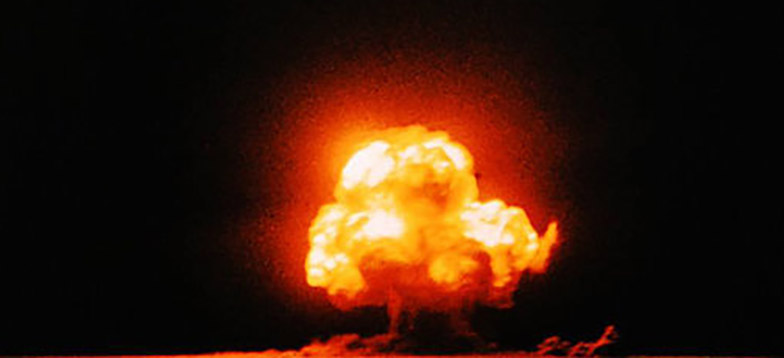The views and opinions expressed on the website are those of the authors and do not necessarily reflect the views or opinions of Niagara Foundation, its staff, other authors, members, partners, or sponsors.
By Justine Gustafson, Center for Public and Global Affairs Intern
July 16, 2015
Today’s date in history will forever stand as a landmark for the world. On this day in 1945, at 5:29:45 a.m., the Manhattan Project came to an explosive end as the first atom bomb was successfully tested in Alamogordo, New Mexico. Since then the spread of nuclear weapons has been at the forefront of global politics and concern. It ended World War II. It served as a leading tool in the long cold war between Soviet Russia and the United States. Today nuclear weapons have led to animosity and even economic and financial sanctions between countries.
Seventy years after the Atomic Bomb’s booming entrance into the world of warfare, we should take the time to think about the long-term impact of nuclear weapons on our global society. The devastation and horror actually inflicted by the bombs themselves when aimed at human targets is evident in cases like the US bombing of Japan’s Hiroshima and Nagasaki. It can be difficult to stomach that the original purpose of the nuclear weapon was to create this level of destruction to humanity.
However, with time, the use and purpose of an atomic bomb has evolved. As it turns out, an unreleased bomb and/or a bomb without a target also has strong power and influence. It can be used as a threatening device, as demonstrated by North Korea. North Korea has repeatedly used their nuclear capacity to display to the world their strength, and power through its nuclear capacity. For example, the three nuclear bomb tests conducted by North Korea in the Pacific Ocean, although unsuccessful, still had the impact of making a political and threatening statement to the rest of the world.
Untapped nuclear weapons can also be used as negotiating chips between two major world powers, as is the case with the recent U.S and Iran Nuclear deals. In exchange for Iran willingly disarming or forfeiting its nuclear ability and allowing European investigation into its facilities, it is being allowed back into an international trade with the West, specifically the United States, a long-time enemy of Iran’s. Between these two nations, no bombs even needed to be detonated, they simply needed to exist to have a political and economic impact on the global stage.
So on this day, it is interesting to consider that the original purpose of the Atomic bomb as a weapon of war has moved to being a weapon of negotiation and expression/concession of power.

